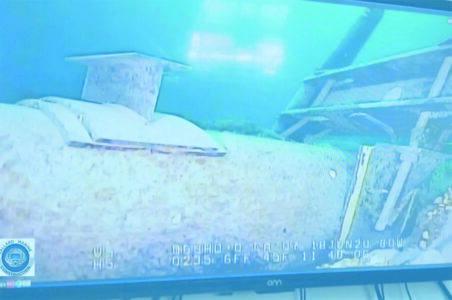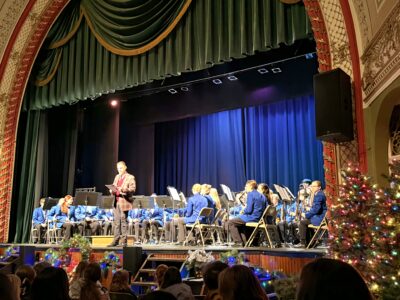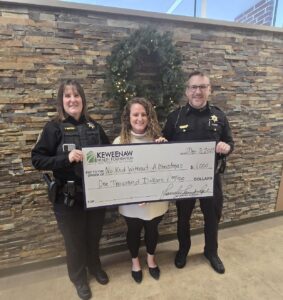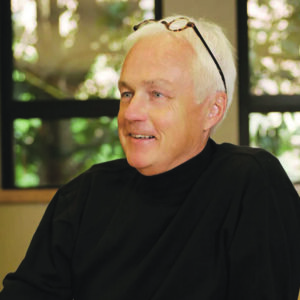Wasted
Composting presentation held last week
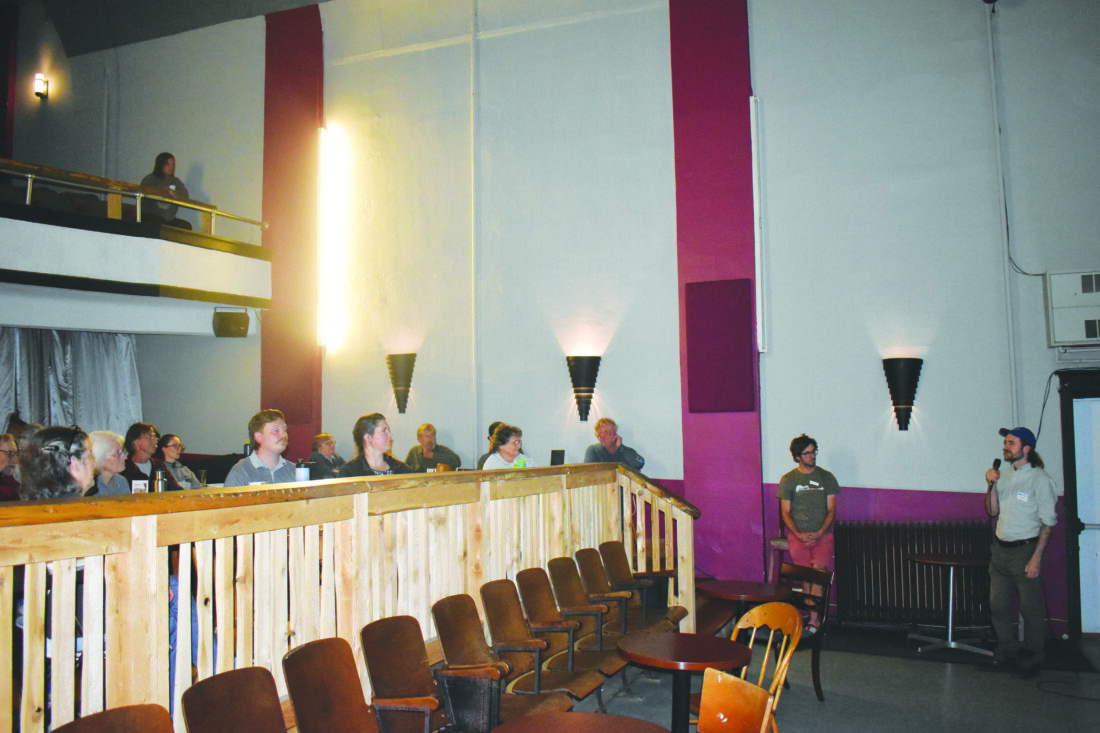
Ben Garbacz/Daily Mining Gazette Copper Country Recycling Initiative Executive Director Jonathon Nagel and WUPPDR Planning Technician Even Lanese answered questions to attendees at the Orpheum Theater following the screening of "Wasted" and their composting presentations. The film observed how food waste can be reproposed and the presentations revealed how Copper Country can better its material management efforts.
HANCOCK — The Copper Country Recycling Initiative (CCRI) and the Western Upper Peninsula Planning and Development Region (WUPPDR) held a screening of “Wasted,” a 2017 film about food waste and potential solutions followed by presentations regarding composting efforts in the Western U.P. at the Orpheum Theater last Thursday. The theater was filled with people from throughout the Copper Country with an interest in expanding recycling methods in the region.
WUPPDR Planning Technician Even Lanese said “Wasted” uses the EPA’s wasted food scale as a framework for dealing with food waste. The film went over food recycling in creative ways like feeding animals food scraps, composting or human consumption such as turning bread scraps into beer. Composting is a method of recycling organic material including food scraps, yard trimmings and wood. Lanese said the screening was part of public outreach in preparation for changes in Michigan laws regarding materials management, and WUPPDR is spreading the word of how these changes will happen. “Materials management is what we call the process of including things like organics and recycling into our waste stream rather than just sending it all to the landfill,” Lanese said.
Lanese went over some projects WUPPDR and others are conducting throughout the U.P. and reviewed a bit of the film. He shared that a friend of his takes spent grain and turns it into crackers, feeding food scraps and excess food to livestock and composting. The reason composting is important is when food scraps are put into landfills, the scraps can produce methane gas, which can be harmful to the atmosphere.
Lanese explained topsoil in the western U.P. is poor, and farmers are pulling in soil from locations sometimes over 100 miles away. Composting can serve as part of the solution to addressing this problem as the waste can be mixed in with soil. Creating a compost center can also lead to job creation for compost manufacturing and maintenance of green infrastructure. Eroding coastlines can also be rehabilitated with compost material.
CCRI Executive Director Jonathon Nagel shared nearly 40 percent of waste in Copper Country could be composted and the CCRI has taken to educating people on food waste regarding its impact on the environment with methane gas and how the resource could have helped others. “That’s also food that could have gone and fed people,” Nagel said. “So we have problem on both ends of that.”
Nagel said the Copper Country is currently meeting the bare minimum requirements regarding the new material management plans, but the opportunity is there to go beyond the minimum. “That is where everyone in this room comes in. We want to make sure that our elected representatives who are going to be making these planning decisions know how important this topic is, that we care, why we care, and that we want to do more with it,” Nagel said.
Some groups and projects which are participating in composting or looking to start were introduced in the presentation — including the Keweenaw Bay Indian Community and Ed’s Auto Salvage’s Tim Palosaari. KBIC Sustainability Specialist Claire Christien shared that KBIC created a fish processing facility in 2019 at the community garden in L’Anse which reuses scraps from processed fish. Palosaari said wood chips, manure and fish scraps are used in the compost blend which can then be used for the garden.
Palosaari shared Ed’s Auto Salvage’s property will be subdivided and a spin off business called Keweenaw Compost will address commercial composting with a rotary compost machine he is hoping will reach the groundbreaking portion by next year.
Lanese also shared a project he has been working on for the past three years, which is a partnership with Osceola Township. Lanese has been trying to create a curbside composting service for residents in the Houghton and Hancock area to see what the service would look like and how it would operate. The service would be located at the old Electric Park Site.

